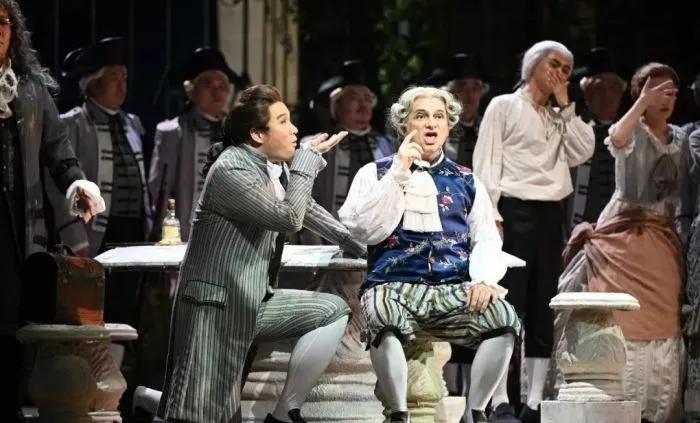The transformation of Italian opera from form to truth in the 19th and 20th centuries
Take Rossini's The Barber of Seville, for example
Text: Chen Jing

One
The form of Italian opera in the 19th and 20th centuries
(1) 19th century formalist opera - emphasizing the "supremacy of form", the creative method has become a formulaic cliché, and the development has gradually become rigid. Opera music only reflects the lyrical elements in the lyrics, and does not pay attention to describing the development of the plot, character and dramatic conflicts, and seriously neglects to reflect the emotional development of the characters.
(2) 20th century expressionist opera - emphasizing subjective feelings, pursuing sensory stimulation, taking self-perception as the highest aesthetic enjoyment, and believing that ugly things should also enter the aesthetic field.
Two
The development and representative figures of opera in the 19th and 20th centuries
The development of Italian opera in the 19th century did not have the romantic radical tendencies of Theo or French music, and it continued more to continue the aesthetic habits of the nation and the traditions of the opera genre. However, at this time, Italian opera has reached the end of the road, so the Italian opera of this period has a strong desire to change the status quo, so that the drama and the authenticity of the drama of music are constantly valued, and many vivid contemporary life content appears on the opera stage.
One of the most representative figures in 19th-century Italian opera was Rossini (1792-1868), who was the first person to revitalize Italian opera and the initiator of the revival of Italian opera art. His opera Il barbiere di Siviglia (The Barber of Seville) quickly became one of the most important performances in opera houses around the world after many performances, making it an immortal masterpiece in the history of opera.
Three
The Path of Transformation in The Barber of Seville
The two-act comedy opera The Barber of Seville is based on the Satirical comedy of the same name by a French writer and written by Stelbini. Rossini completed the composition in just 13 days, but its premiere was unsatisfactory, one of the most famous premiere failures in the history of Western European opera.
But in the play, Rossini gave full play to the smooth and light melody of the lively and vivid orchestral sound he was good at, as well as the straightforward and invigorating sense of rhythm, while delicately portraying the pleasant plot full of irony... These "new, unique beings" have given things a turnaround! The next day things improved, and a week later, the show was a huge success.
epilogue
In the 19th and 20th centuries, after the transformation of Italian opera from form supremacy to true feelings, the form and theme of opera were richer, and many immortal operas appeared, which are the treasures of Italian musical culture and a bright pearl in the treasure house of human culture...